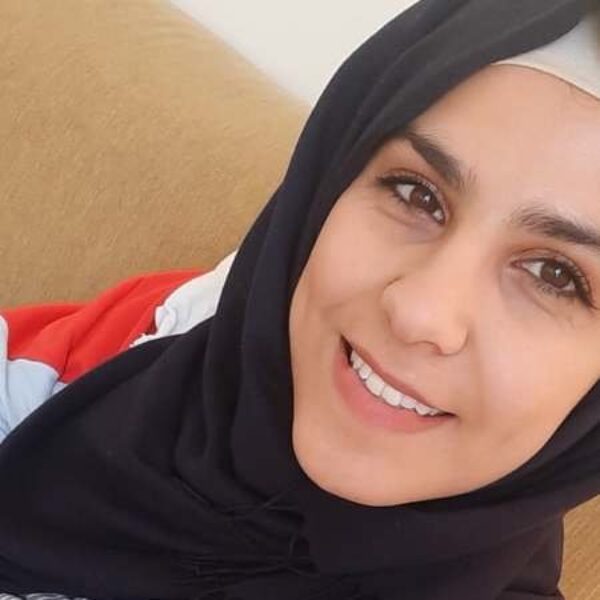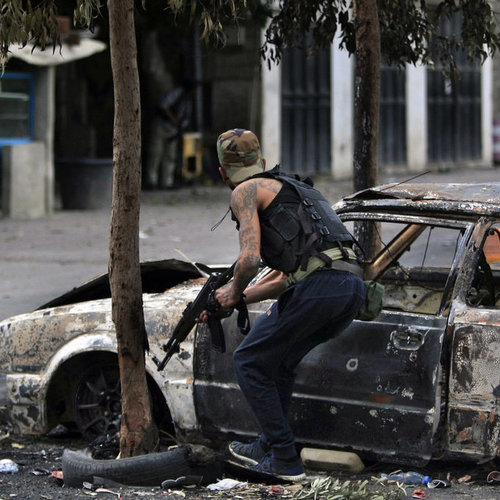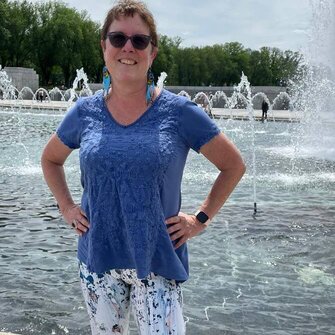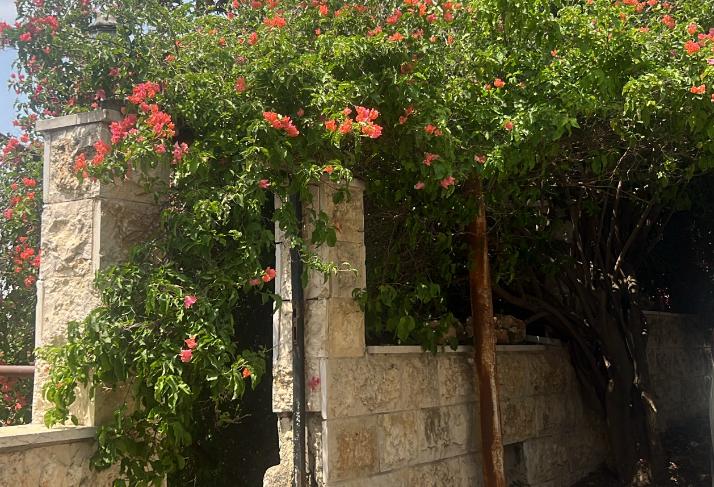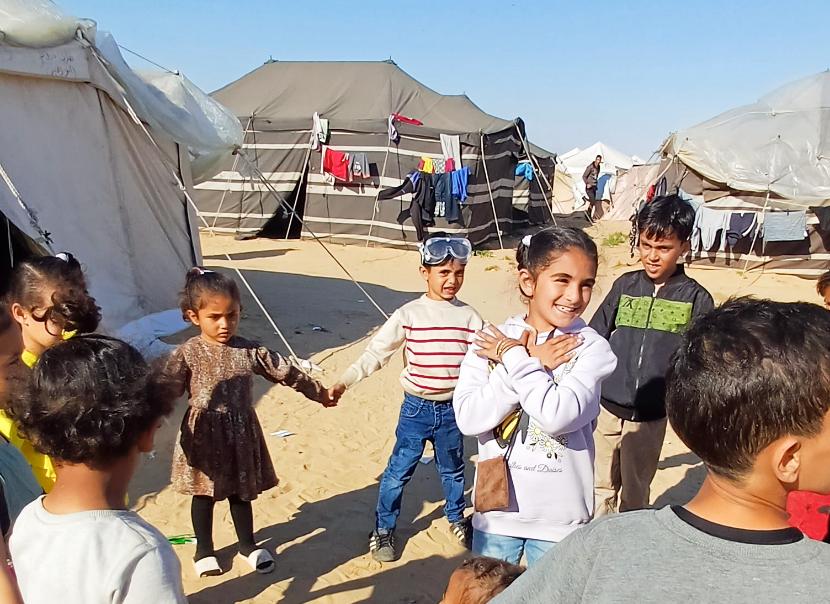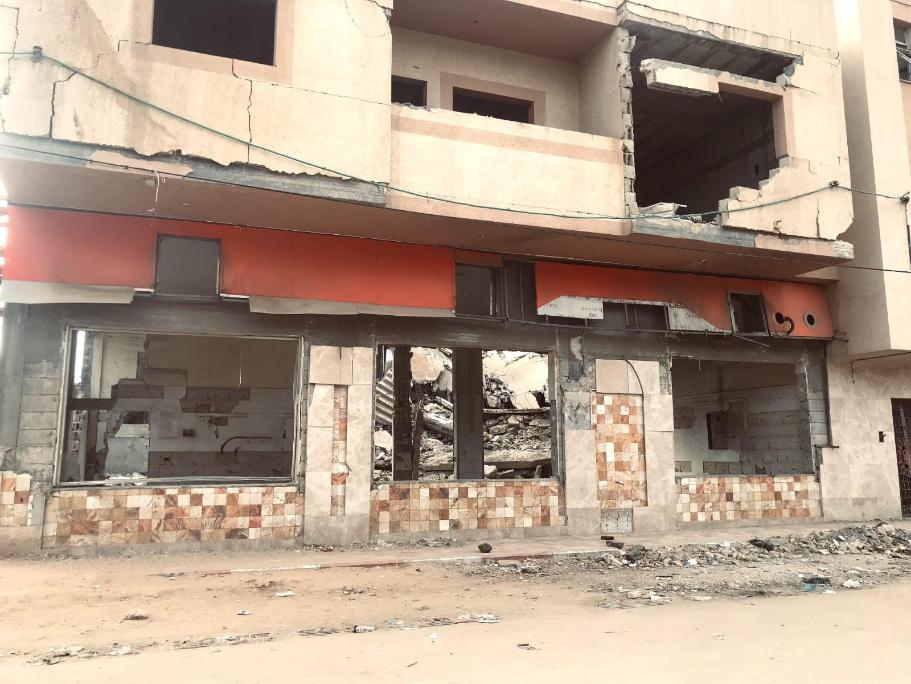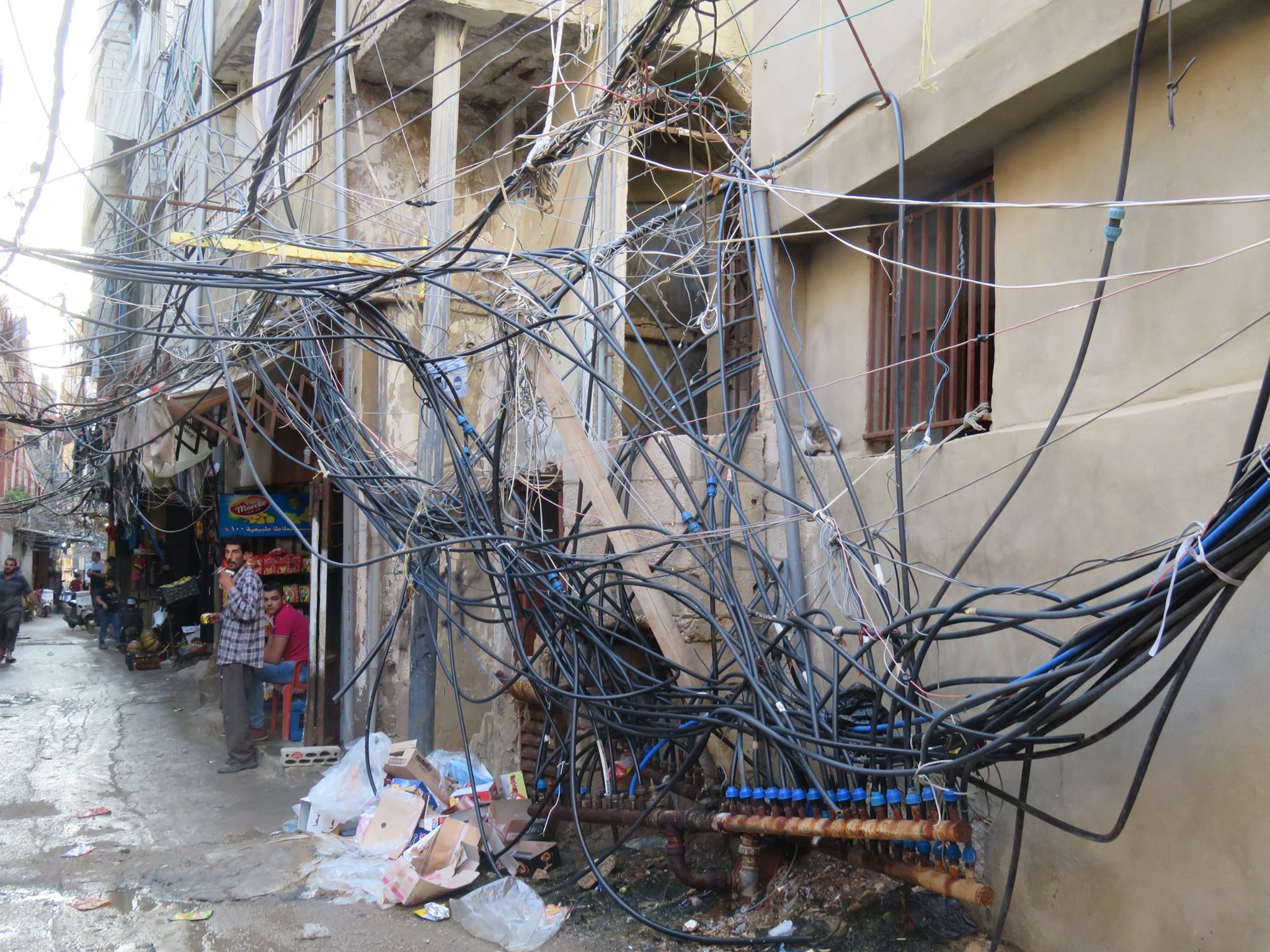
When I enter Ein El-Helweh, Lebanon’s largest refugee camp and my home, I see misery and feel pain with every step on the dirty, unpaved streets…each glance down the narrow alleys full of garbage…each view of the sky blocked by the mass of tangled electricity wires. It’s never safe to walk around the camp and too frequently, I’m reminded of that by the sound of bullets or a sudden bomb out of nowhere.
People of the camp (including me) have a weird way of adapting to these situations, of lessening the pain. We tell ourselves things like, “We are powerful and smart people!” But how can we be so smart and live in such a dark place? How can we love the camp when it’s the most insecure area in the country? All of our memories are here, there are so many friendly and generous people, and it makes us feel closer to Palestine; this is where many of the first refugees settled down. But at the same time, there is so much hatred and killing, due to the political factions and uncertain future for Palestinians in Lebanon.
I ask myself and others these questions and even get into arguments with strangers about it. I recently told a girl who was sitting next to me in a taxi “No, we are not smart or powerful people! We just tend to say that to keep going through life! We deceive ourselves by such statements.” I was really upset with myself and her and every single person in the camp because the last round of clashes injured a 10-year-old boy who was crossing the street and killed a teenager who was putting out a fire caused by a bomb. How can we be this smart and powerful if we let these two children get shot? (In the video below, you will hear the gunshots common on my street, as a boy tries to buy ice cream from a truck.)
Why am I feeling this badly? It wasn’t the first time clashes had broken out. You get used to the sound of bullets and bombs. “I’m not even afraid. So why am I this mad?” This was the question I had in my mind. I was blaming myself for getting mad about a clash! How ironic is that? I wanted to get these thoughts out of my mind. Clashes that wound and kill should never be normal. When clashes break out, I usually spend the entire time at home with my family; we don’t go anywhere in the camp so that we will be safe. We hear the voices of the bullets and explosions and maybe some bullets lodge in our walls. We try avoid certain rooms. This time was different though; there were rumors that the fights would destroy Ein El Helweh this time, as happened with Nahr El-Bared (in the north of Lebanon) and Yarmouk (a Palestinian refugee camp in Syria). As if it’s our destiny to destroy our only shelters.
This time, when the clash occurred, I was not a kid anymore. I have seen life outside Ein El Helweh, since as I lived in Beirut for four years of university. And this time I had a meeting the next day in Beirut and I had to be on time because life outside the checkpoints goes on. So I decided to seek refuge in my sister’s home outside the camp, since it would be impossible to find a taxi the next day or even be able to get to the main street because of the snipers spread out all along it. My two brothers refused to leave our home and thus so did my mother and sister-in-law because they didn’t want to leave them alone. But I had to leave; I had my commitment and I was really mad at myself, my people and my camp for not being able to live a normal life.
In the afternoon, my brother and I took a side street to bypass the checkpoint outside the camp so that my brother-in-law could me in his car. The minor road was safer than the main one, yet I was scared my brother would be hurt. When we reached the street I asked him go back home, and I continued. The street was empty, with only a couple of men with weapons. I looked back to see my brother standing still, watching me walk away and he smiled. I continued and hid my tears. I felt so much pain at that moment. It was never just a visit to my sister; I was obliged to leave my home to be able to get to a job meeting normally.
To me it was a small imitation of the Nakba in 1948, when my ancestors had to leave their homes to make way for the Israeli occupation. The reasons are different, the people are different, the time is different, and I just left for a day. We Palestinians are completing our 69th year outside Palestine! Yet the two cases felt alike in some way or another.

